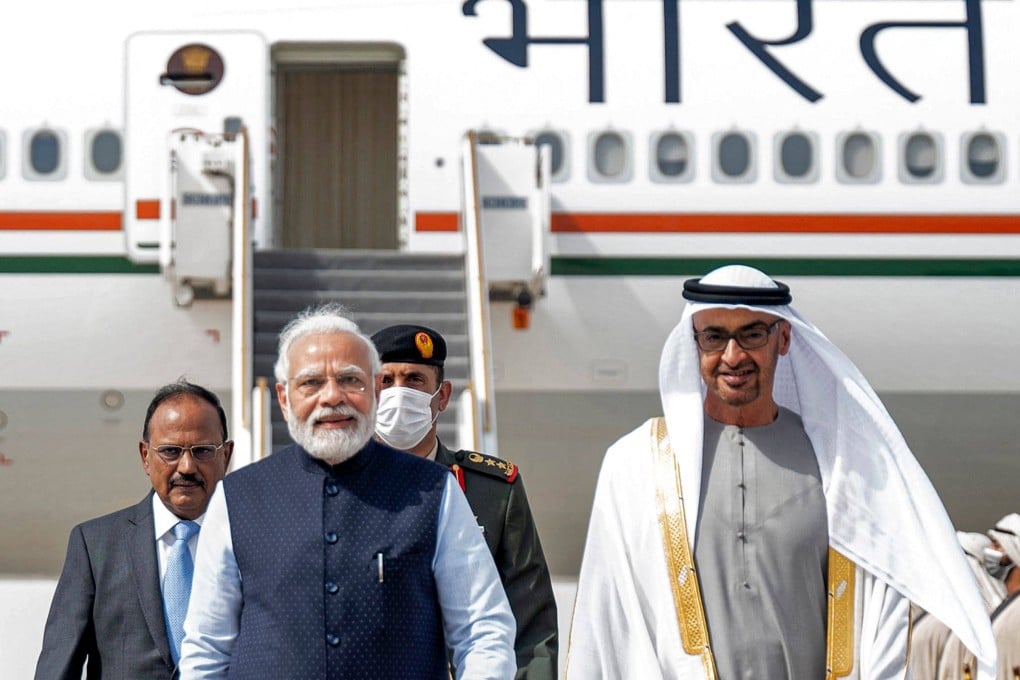India PM Narendra Modi’s meeting with UAE president Sheikh Mohammed bin Zayed Al Nahyan highlights New Delhi’s concerns about Gulf ties after Prophet Mohammed row
- Narendra Modi stopped off at Abu Dhabi airport on his way home from G7 summit to meet UAE president Sheikh Mohammed bin Zayed Al Nahyan
- In India many believe their brief conversation trumped the summit, given the recent diplomatic storm after two spokespersons from Modi’s party were accused of insulting the prophet Mohammed

Even as the Group of Seven (G7) summit in Germany made headlines, some curious commentary in India pointed to a lesser-publicised, brief stopover in Abu Dhabi by Prime Minister Narendra Modi on his way home on Tuesday.
There, he called on United Arab Emirates (UAE) president Sheikh Mohammed bin Zayed Al Nahyan, with the two meeting at the airport.
In New Delhi, many believed that this brief conversation, lasting just over an hour, “trumped” the two-day G7 summit in terms of its significance for India.
India is not in the G7 but was invited, along with Argentina, Indonesia, Senegal and South Africa, as a partner country.
Ostensibly, the Modi-Nahyan meeting did not achieve much, with an Indian readout saying “the main purpose” of the visit was to convey Modi’s personal condolences on the death last month of the former UAE president, Sheikh Khalifa bin Zayed Al Nahyan.
Modi was last in the seven-emirate UAE in August 2019.
